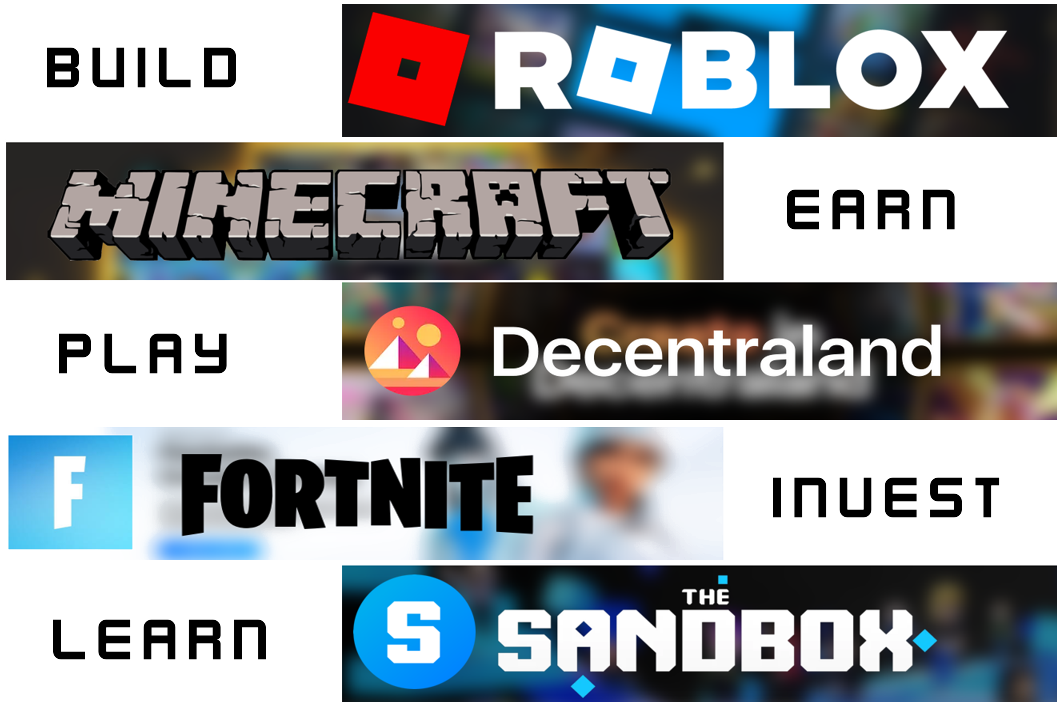
What You Can Learn From the Facebook Metaverse
The first iteration of the Facebook Metaverse is in its final death throes if it’s not dead already. But don’t let that fool you, the potential for the widespread use of virtual space has done nothing but grow. The road to success is often paved with mistakes, and the billions of dollars lost in the process serve as quite a sturdy path to start with.
If nothing else, the money lost proves substantial interest and desire to get in on the ground floor. Virtual worlds are undoubtedly going to be a staple of business in the future, the only question is when it’s going to take off.
Fortunately, the metaverse as we know it isn’t the purview of a single corporate giant like Meta, as confusing as the nomenclature might be. If you’re curious, we’ve got you covered! Read on to find out more.
What is a Metaverse?
The answer to ‘What’s a metaverse?’ is simple, a metaverse is any virtual space that’s used to communicate and interact with other people. At the moment these spaces are fledgling concepts that are only just starting to become reality. There’s so much interest in the idea because, in virtual space, the only barrier is our imagination.
Whatever someone can think of as a good idea for a business in terms of interconnectivity can be made real. This includes the exchange of goods and services, including real-world money transactions. The point to underline is that when it comes to virtual worlds, the question isn’t if they’re going to become popular, it’s when.
The rise of widespread use of virtual spaces is inevitable, and Big Tech is in a frantic race to be the first to get the ball rolling. Think of Christopher Columbus and the advent of the discovery of the New World, except in this scenario, he has to construct it himself from the ground up. The idea has been discovered, now it’s up to the builders to be the first to realize the idea.
Facebook Metaverse Confusion
Facebook changed its name to Meta to herald the approach of what they had hoped to be the forerunner of online virtual spaces, which they dubbed the Metaverse. The move was a calculated effort to confuse people into thinking all virtual spaces had something to do with them. The term Metaverse was coined in 1992 by the author Neal Stephenson in his book Snow Crash and is nothing new.
A ‘Metaverse’ is the currently accepted name for any interconnected virtual space. ‘The Metaverse’ was Facebook’s attempt to corner the market. The cost of rebranding Facebook to Meta cost somewhere in the ballpark of 500 billion dollars.
If this seems a little on the steep side, it might make a little more sense when you consider the potential effect of the name. The rebrand was a clever attempt to associate all future metaverse conversations and projects with the vision of Mark Zuckerberg. While his ship is sinking at the moment, it may well prove to be a clever move in the future.
Metaverse Crypto
Virtual spaces aren’t the only fledgling technology to be experiencing runaway development. Cryptocurrencies, despite their widespread news coverage and general interest, are still seen to be massively underrepresented. Their potential for future use and impact isn’t limited to the real world, either.
If the metaverse is going to flourish and virtual spaces become as popular as many predict, it only makes sense for these convergent technologies to interact. The definition of currency is changing, and these virtual spaces are going to require forms of payment to facilitate their growth in new and unexpected ways. Both new technologies may act as a catalyst for the growth of each other.
The speculation of symbiotic relationships when it comes to new technologies and their interaction is a volatile one. If one succeeds, it can assure the success of others in tandem. When it comes to looking ahead for potential investment opportunities, it makes perfect sense why the metaverse and crypto markets are such seductive prospects.
Virtual Reality and Metaverse News
The future of the metaverse is looking more promising than ever as technology continues to advance. Virtual reality headsets are beginning to iron out motion sickness problems and are lighter and cheaper than ever. The most important hurdle to overcome for attracting interest and investment in virtual worlds is making them more accessible.
The continued development of the metaverse is starting to look a bit different from how it did at its conception. Rather than looking far ahead as possible to attract potential investors with unsubstantiated claims, companies are starting to focus on what’s possible right now. The ever-growing number of tech startups focusing on hardware and software dedicated to virtual reality is paving the way for a new tomorrow.
Tech shows are a litany of booths proudly showing off improvements to this end. Augmented and virtual reality technologies are beginning to overlap in ways that show unexpected promise. Each leap in technological refinement brings us closer to a world where the virtual and the mundane interact seamlessly.
Facebook’s View of the Future
While the progress of Facebook’s Metaverse has been halted in its tracks, businesses around the world have benefited from their entrepreneurial spirit. Without the trailblazing attitude of the social media giant, smaller organizations wouldn’t have had such an easy time.
It’s clear to see where Facebook (Meta) went wrong, and what not to do. They’ve proven their view holds water, as their failure hasn’t dampened interest in constructing and populating virtual worlds.
Business models never seen before are ready to take humanity by storm. At the moment we’re sitting on the precipice of a world ready to welcome the use of virtual reality with open arms. It won’t be long until business meetings are held in virtual space and are conducted and attended by the avatars of tomorrow.
Business is the Least of It
With an expected revenue of 583 billion dollars by 2030, the video game industry far outstrips all other forms of recreational entertainment in terms of profit. The virtual reality sector has only begun its journey in terms of accessibility, but as things get going the potential for revenue in this relatively untapped market is gargantuan.
Online gaming has set the stage for vast multiplayer worlds to dominate all other forms of games. People are always looking for the next best thing, and when it comes to VR, the potential for immersion is unmatched. The time will come when people spend more time in the metaverse world than in the one they were born in.
Time is money, and with the amount of time spent in virtual worlds, there will be ample opportunity to capitalize on people’s enjoyment. Before long, cryptocurrencies, metaverse companies, and their end users will be intertwined inextricably. If you’re not convinced, you only need to look at the big tech companies and where their money is going to tell which way the wind is blowing.
The Facebook’s Metaverse Lesson
Ultimately the most useful lesson from looking at Facebook’s Metaverse for inspiration is what not to do. They can hardly be blamed for rushing into the unknown, especially when it’s so clear that the sky’s the limit. Whoever manages to get the first firm foothold and associate their product as the forefront of virtual space will have a stranglehold on the competition.
This type of leverage is worth betting the farm on. It’s the kind of opportunity that comes once in a lifetime, and Mark Zuckerberg knew it. Unfortunately for him, his company seems to have rushed a little too frivolously in their attempt to plant their flag and stumbled catastrophically along the way.
Other companies are taking note and proceeding with considerably more caution. As time passes, we’re sure to see one or two companies edge the others out. It’s clear to see that in the current climate, whoever manages to secure a place at the top will dictate the virtual future for all of us, and perhaps the real as well.
The Gold Rush
While products like the Facebook Metaverse clamor for the best claim, we can sit back and watch with interest as things develop. There’s no telling how things will pan out in the end, other than that a future heavily dependent on virtual space is all but assured.
If you enjoyed this article and are keen to learn more, feel free to contact us here! We’d love to hear from you.


